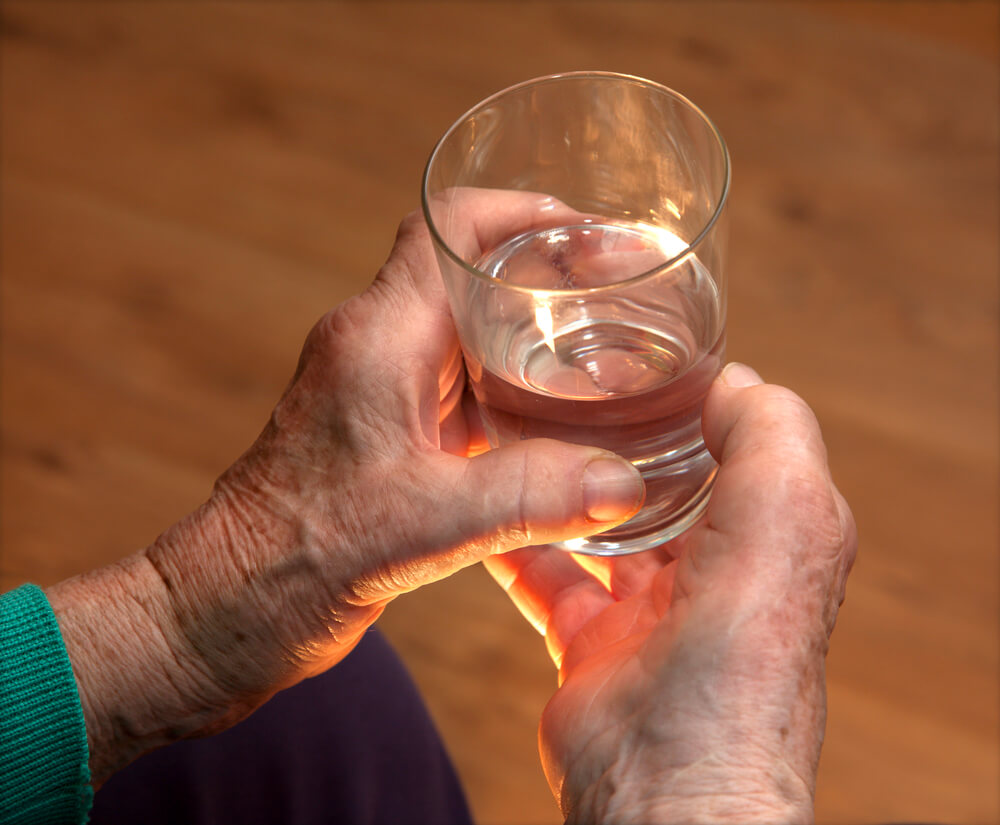Why does dehydration affect seniors?
Most people understand seniors are at a greater risk for dehydration. However, the average person is understandably unaware of the signs of dehydration in elderly with dementia, the best hydrating drinks for elderly, the top electrolyte drinks for elderly and other nuances of dehydration.
In terms of why older adults at risk for dehydration often become dangerously dehydrated, doctors and scientists commonly point to the fact that older individuals are that much more likely to have less water within their body. A body that is lacking in water is that much more likely to become dehydrated. It is also possible that the senior’s medications or health conditions heighten the chances for dehydration.
As an example, some elderly individuals take blood pressure medication that eliminates water from the body. Seniors commonly have inefficient kidneys that allow for excess water consumption. Add in the fact that seniors are less sensitive to thirst, are not as likely to maintain a balance of fluid levels and there is all the more reason for them to suffer from dehydration at a comparably high rate.
What can cause dehydration in elderly?
In most seniors, the failure to consume water is the top cause of dehydration. However, spending too much time in the sun, drinking soda or other beverages laden with sodium that dehydrate the body and taking medications that cause dehydration can also dry out the body faster than expected. Furthermore, the kidneys simply do not work like they did when the body was younger, meaning dehydration is that much more likely to occur faster in older age than it did in earlier years.
What are the symptoms of dehydration in elderly?
If you notice the senior in your life has cracked lips or skin, urinates infrequently, has dry mouth or feels dizzy, he or she might be dehydrated. Additional symptoms of dehydration in seniors include fatigue, headaches, low blood pressure, a bloated midsection, a weak pulse and muscle cramps in the arms/legs.
Dehydration risk factors in older adults
Seniors have certain risk factors for dehydration that are not as common in other age cohorts. Examples of elderly individuals’ dehydration risk factors include visual impairment, limited mobility/functionality, incontinence and speaking ability.
Why are older adults at risk for dehydration?
Seniors are more likely to be dehydrated as the body naturally dries out throughout the aging process. The reduction in water in the body dries it to the point that it becomes dehydrated. Furthermore, seniors are more likely to take mediations that remove water from the body and increase the chances of dehydration all the more.

Can dehydration cause dementia symptoms?
Dehydration has the potential to cause the onset of symptoms that are similar to those of dementia. There is also the potential for a dementia patient to become dehydrated yet unable to recognize the need to drink or communicate the fact that they are dehydrated. Dehydrated brains are forced to work two times as hard to complete tasks, meaning the lack of sufficient water is especially harmful for those who have dementia or another form of cognitive decline.
Reduced levels of water within cells that comprise the brain ultimately result in the misfolding of proteins and prevent toxic proteins from being sent away from sensitive areas of the brain. In other words, there is no question as to whether dehydrated brain cells are associated with dysfunction of the brain.
Everyone with an aging parent or other relative should be aware of the fact that senior citizens are more vulnerable to cognitive decline that is dehydration-related. The natural changing of the body composition throughout the aging process reduces the water level stored within the body, meaning muscle is lost and fat is gained. Muscle is essential for hydration as it serves as a sizable storage space for moisture. It is also worth noting the brain becomes less sensitive to the urge to drink as a result of thirst as the aging process unfolds.
The truth is that the senior in your life might be dehydrated and need water yet not have the desire to drink it unless encouraged to do so by you or a home health service provider. Dehydration has the potential to prove deadly. Instead of searching the web for “what are the side effects of dehydration in the elderly?” or something similar, consider the fact that a dehydrated senior is much more likely to suffer a slip and fall that breaks a bone or even proves fatal. Dehydrated senior citizens struggle to think clearly, lack energy, are fatigued and might forget to take their medication. The side effects of dehydration extend all the way to irritability, difficulty breathing and confusion.
How to treat dehydration in elderly
Treating dehydration in the elderly centers on rest and choosing the right beverages. Exchange the beer, spirits, wine and alcohol for water along with electrolyte-laden sports drinks and you’ll greatly reduce the chances of dehydration. Continue to reduce sodium intake through prudent food choices, consume additional water through fresh fruits and vegetables and the body will balance out its moisture level.
Best hydrating drinks for elderly
When it comes to dehydrating beverages for the elderly, water is ideal. Sports drinks with electrolytes also fast-track the rehydration process yet they are costly and have the potential to be loaded with sugar.
Tips to prevent dehydration
You can do your part to prevent the senior you love so much from becoming dehydrated by bringing water with you each time you visit. Add a bottle of water to your elderly relative’s car, drop off a few bottles in the fridge and recommend drinking sports beverages with electrolytes instead of dehydrating alcoholic drinks. If the senior in your life is still mobile, encourage him or her to drink half a glass of water prior to physical activity and continue hydrating throughout the physical activity to provide the body with much-needed water. Top off eight glasses of water per day with delicious water-laden fruit for a nightcap and the body will be moisturized all the more.


